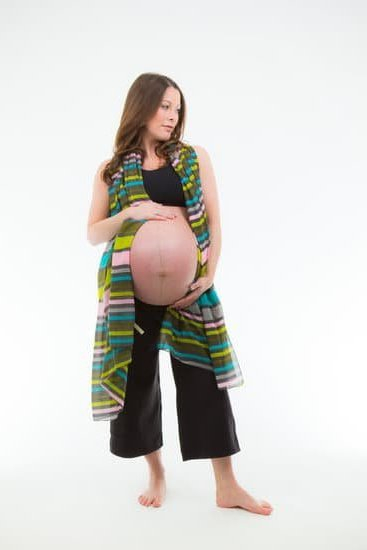Hot flashes are a common symptom that many women experience at some point in their lives. But is hot flashes a sign of pregnancy? Understanding the relationship between hot flashes and pregnancy is important for expectant mothers.
Hot flashes are sudden feelings of heat, which can lead to flushing, sweating, and a rapid heartbeat. They are often associated with menopause but can also occur in other stages of a woman’s life. In this article, we will explore whether hot flashes can be an indication of pregnancy and how to manage them during this crucial time.
Hot flashes are typically caused by hormonal fluctuations that affect the body’s temperature regulation system. During menopause, the drop in estrogen levels triggers these sudden feelings of heat. Similarly, during pregnancy, hormonal changes can also result in hot flashes. While hot flashes are commonly known to be linked with menopause, they can also be experienced by pregnant women as their bodies undergo significant hormonal shifts to support the developing fetus.
Pregnant women may wonder if experiencing hot flashes could be a sign of their condition. Although hot flashes are not considered a definitive indicator of pregnancy on their own, they can sometimes accompany other early signs such as missed periods or nausea.
Understanding the potential signs of pregnancy is essential for identifying early symptoms and seeking appropriate prenatal care. As we delve deeper into the connection between hot flashes and pregnancy, it is crucial to consider other possible indicators as well to confirm the presence of pregnancy accurately.
Understanding Hot Flashes
Hot flashes are a common symptom that many women experience during different stages of their lives, including pregnancy. These sudden feelings of warmth or heat can cause flushing and sweating, often followed by chills. Hot flashes are typically associated with menopause, but they can also occur in pregnant women due to hormonal changes.
To better understand hot flashes, let’s break down the definition, causes, and symptoms associated with this phenomenon:
– Definition: Hot flashes are sudden, temporary sensations of heat that can affect the face, neck, and chest. They may last for a few seconds to several minutes and can vary in intensity.
– Causes: In women, hot flashes are primarily caused by fluctuations in estrogen levels. During pregnancy, hormonal changes play a significant role in triggering hot flashes.
– Symptoms: In addition to feeling warm or flushed, women experiencing hot flashes may also have a rapid heartbeat, experience sweating, and feel anxious or irritable during an episode.
Women going through menopause often associate hot flashes with this stage of life. However, it is essential to recognize that hot flashes can also be present in pregnant women as their bodies undergo significant hormonal shifts. If you are experiencing hot flashes along with other symptoms like missed periods or nausea,is not unusual for these signs to point towards pregnancy. Progesterone levels rise significantly during pregnancy which can lead to increased body temperature and result in hot flashes.
In summary:
1. Definition:
2. Causes:
3. Symptoms:
Hot Flashes and Menopause
Connection Between Hot Flashes and Menopause
Hot flashes are commonly associated with menopause, which is the natural transition period in a woman’s life when her menstrual cycles cease. During menopause, the body undergoes significant hormonal changes, particularly a decrease in estrogen levels.
These hormonal fluctuations can trigger hot flashes, which are characterized by sudden feelings of intense heat that spread throughout the body. While hot flashes are a well-known symptom of menopause, they can also occur in other stages of a woman’s life, including pregnancy.
How Menopause Affects Hot Flashes
Menopause is often the primary cause of hot flashes in women due to the hormonal shifts that take place during this stage. The decline in estrogen levels disrupts the body’s ability to regulate temperature, leading to sudden changes that result in hot flashes.
Additionally, factors such as stress, diet, and lifestyle choices can exacerbate the frequency and intensity of hot flashes during menopause. While these symptoms are typically temporary and improve over time as the body adjusts to new hormone levels, they can still be challenging for women to manage.
Individual Experiences With Hot Flashes
It is important to note that while many women experience hot flashes during menopause, each individual may have unique experiences with this symptom. Some women may have severe and frequent episodes of hot flashes, while others may only experience mild discomfort occasionally.
Understanding how menopause affects hot flashes can help women navigate this natural stage of life with more awareness and knowledge about what to expect. If you are experiencing bothersome hot flashes during menopause or having concerns about your symptoms, it is advisable to consult with your healthcare provider for personalized guidance and support.
Hot Flashes as a Sign of Pregnancy
Hot flashes, characterized by sudden feelings of warmth, flushing, and sweating, are commonly associated with menopause. However, can hot flashes also be a sign of pregnancy? The answer is yes, hot flashes can indeed be a symptom of pregnancy for some women. While not as commonly discussed as other signs like morning sickness or fatigue, hot flashes during pregnancy can occur due to hormonal changes that take place in the body.
Pregnancy hormones, specifically estrogen and progesterone, are responsible for various changes in a woman’s body during pregnancy. These hormonal fluctuations can affect the hypothalamus, the part of the brain that regulates body temperature. As a result, some pregnant women may experience sudden bouts of heat known as hot flashes. These episodes can vary in intensity and duration but are generally harmless and temporary.
While hot flashes are not considered a definitive indicator of pregnancy on their own, they may be part of a cluster of symptoms that point towards early pregnancy. Other common signs include missed periods, tender breasts, fatigue, nausea or vomiting (morning sickness), and frequent urination. If you suspect you may be pregnant and are experiencing hot flashes along with these symptoms, it is advisable to take a home pregnancy test or consult your healthcare provider for confirmation.
Hormonal Changes During Pregnancy
Explanation of Hormonal Changes During Pregnancy
During pregnancy, a woman’s body undergoes significant hormonal changes to support the growth and development of the baby. One of the key hormones that plays a crucial role in pregnancy is progesterone, which helps maintain the uterine lining and prepare the body for childbirth. Additionally, estrogen levels also increase significantly during pregnancy to promote fetal development and support a healthy pregnancy.
These hormonal changes can impact various systems in the body, including the circulatory system, immune system, and temperature regulation. As a result, some women may experience symptoms like nausea, fatigue, mood swings, and yes, hot flashes. These hot flashes are often attributed to the fluctuating levels of hormones in the body as it adapts to pregnancy.
How These Changes Can Lead to Hot Flashes
The hormonal fluctuations that occur during pregnancy can trigger hot flashes in expectant mothers. Hot flashes are characterized by sudden feelings of warmth that spread throughout the body, often accompanied by flushing and sweating. This sensation is caused by changes in blood flow and temperature regulation in response to hormonal shifts.
Specifically, rising levels of estrogen can impact the hypothalamus, the part of the brain responsible for regulating body temperature. This can lead to sudden vasodilation (widening of blood vessels) and increased blood flow to the skin’s surface, resulting in a feeling of heat and sweat production.
While not all pregnant women will experience hot flashes, they are relatively common due to these hormonal changes during pregnancy. If you are unsure whether your hot flashes could be related to pregnancy or another underlying condition, consulting with a healthcare provider is advisable for personalized guidance and support.
Managing Hot Flashes During Pregnancy
During pregnancy, many women experience a variety of symptoms that can be both uncomfortable and concerning. Hot flashes, in particular, are a common occurrence for some pregnant individuals. These sudden feelings of heat, sweating, and flushing can be alarming, especially if the individual is unsure whether they may be expecting a child.
So, is hot flashes a sign of pregnancy? The answer is yes – hot flashes can indeed be an indicator of pregnancy and are often linked to hormonal changes taking place in the body.
To help manage hot flashes during pregnancy, there are several strategies and tips that expectant mothers can employ. These include:
- Dressing in layers: Wearing loose-fitting clothing made from breathable fabrics can help regulate body temperature and reduce the intensity of hot flashes.
- Staying hydrated: Drinking plenty of water throughout the day can aid in cooling the body and minimizing the frequency of hot flashes.
- Avoiding triggers: Identifying specific triggers such as spicy foods, caffeine, or stressful situations that may worsen hot flashes and avoiding them where possible.
If hot flashes during pregnancy become severe or are accompanied by other concerning symptoms, it is essential to seek medical advice promptly. While experiencing hot flashes alone may not necessarily indicate a problem, discussing any persistent issues with a healthcare provider can help ensure the well-being of both mother and baby throughout the pregnancy journey. It is always better to err on the side of caution when it comes to unusual symptoms during this crucial time.
Pregnancy and Body Temperature Regulation
Hot flashes are a common symptom that many women experience, especially during significant hormonal changes like menopause or pregnancy. The question “is hot flashes a sign of pregnancy?” often arises among women who notice this sudden sensation of heat spreading throughout their body. Hot flashes during pregnancy can indeed be a sign of the body adjusting to hormonal shifts that occur during this crucial time.
During pregnancy, the body goes through a myriad of changes to accommodate the growing fetus and prepare for childbirth. Hormonal fluctuations play a significant role in these changes, leading to various symptoms such as morning sickness, fatigue, and yes, hot flashes. These sudden feelings of warmth can be attributed to the increased levels of estrogen in the body, which is necessary for maintaining a healthy pregnancy.
It is essential for pregnant women who experience hot flashes to understand that they are not alone in this symptom. While it may feel uncomfortable and even overwhelming at times, knowing that it is a common occurrence among pregnant women can provide some reassurance. Additionally, seeking medical advice if hot flashes become severe or accompanied by other concerning symptoms is crucial for ensuring both maternal and fetal health.
| Topic | Details |
|---|---|
| Importance of Hormonal Changes | Increased estrogen levels lead to hot flashes during pregnancy. |
| Seeking Medical Advice | Important if hot flashes are severe or accompanied by other concerning symptoms. |
Conclusion
In conclusion, hot flashes can indeed be a sign of pregnancy for some women. While it is more commonly associated with menopause, hormonal changes during pregnancy can also lead to these sudden sensations of heat. It is essential for expectant mothers to be aware of this potential symptom and not dismiss it solely as a sign of menopause.
Pregnant women experiencing hot flashes should take comfort in knowing that they are not alone in this experience. While the occurrence of hot flashes during pregnancy may vary among individuals, seeking medical advice is always recommended to ensure the health and well-being of both mother and baby. It is crucial to stay informed about other potential signs of pregnancy and communicate any concerns with healthcare providers.
As the body undergoes significant hormonal changes during pregnancy, it is natural to experience various symptoms like hot flashes. Understanding how these changes affect the body’s temperature regulation can empower pregnant women to proactively manage uncomfortable symptoms. Overall, maintaining open communication with healthcare professionals and seeking appropriate support can help navigate through this exciting yet challenging phase of life.
Frequently Asked Questions
How Soon Do Hot Flashes Start in Pregnancy?
Hot flashes can start in pregnancy as early as the first trimester, typically around weeks 6 to 8. Hormonal changes, increased blood flow, and an elevated metabolism can contribute to these sudden feelings of heat.
When Do You Start Feeling Hot in Pregnancy?
Feeling hot in pregnancy can begin in the first trimester for some women, while others may not experience this sensation until later on. This increased body temperature is often due to hormonal changes and an increase in blood volume circulating throughout the body.
What Are the Symptoms of Pregnancy in the First Week?
The symptoms of pregnancy in the first week are often subtle and can be easily overlooked. Some women may notice light spotting, mild cramping, or breast tenderness.
Fatigue and mood swings can also be early signs of pregnancy during this time. It’s important to remember that every woman’s experience is unique and some may not exhibit any noticeable symptoms in the first week.

Welcome to my fertility blog. This is a space where I will be sharing my experiences as I navigate through the world of fertility treatments, as well as provide information and resources about fertility and pregnancy.





